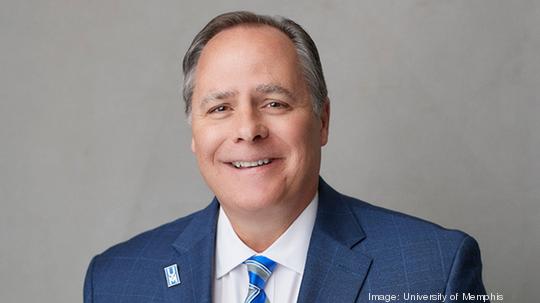
In spring 2022, M. David Rudd, Ph.D., officially stepped down from his role as president of the University of Memphis. But the former commander-in-chief of the Tigers isn’t about to ride off into the sunset.
Instead, Rudd has transitioned to faculty. And already, he's diving headfirst into his work as a distinguished professor of psychology, playing a key role in a major project.
According to a press release, U of M is participating in a study that’s testing a digital version of brief cognitive behavioral therapy (BCBT) as a form of suicide prevention in military populations. The overall effort — housed at Ohio State University — is comprised of five separate studies, one of which is being spearheaded by U of M. The school has been granted $2.2 million for its project in the effort — part of an overall fund of $8.5 million — and Rudd is its principal investigator (PI).
Recently, two clinical trials sponsored by the U.S. Department of Defense (DoD) showed that BCBT can help prevent suicide; in the trials, that type of therapy reduced suicide attempts by 60% among treatment seeking service members. Fewer than half of service members who die by suicide, however, visited a specialty mental health clinic in the months leading up to their deaths — limiting the reach of BCBT.
The belief is that expanding access to BCBT could lower the amount of military suicide. And Oui Therapeutics — a company Rudd helped create — has developed a digital version of BCBT called Aviva, which was designed to be used with patients across the entire spectrum of health care settings. Already, the app’s safety and potential efficacy has been proven in a phase 1 clinical trial, and subsequent refinements have continued to improve it.
Now, Aviva is set to be used among service members for the project. The study will be conducted at primary care clinics in Fort Collins, Colorado, and the goal is to enroll 350 patients over two years. For Rudd, this type of research isn’t new. U of M has established the Rudd Institute for Veteran and Military Suicide Prevention in his name, and he’s been tapped to lead it.
Projects like the one related to BCBT are crucial for U of M as it looks to keep its status as a top-tier research university. In December 2021, the U of M gained R1 status from the Carnegie Classifications of Institutions of Higher Education, a highly coveted designation that local leaders say can be an economic boon for not just the school but the entire city.
Once R1 status is gained, however, it must be retained — Carnegie releases new rankings every three years — and a key part of that is research expenditures. Fortunately for U of M, its faculty members brought in an array of grants in October. Here are some examples:
- Stephanie Ivey, Ph.D., was awarded $403,331 from the National Science Foundation and $85,000 from Battelle
- Emily Puckett, Ph.D., was awarded $389,999 from the National Fish and Wildlife Foundation
- Marian Levy, DrPH, was awarded $332,500 from the Tennessee Department of Health with the Centers for Disease Control and Prevention
- Stephen Zanskas, Ph.D., was awarded $200,000 from the U.S. Department of Education
- Susan Neely-Barnes, Ph.D., was awarded $196,803 from the Health Resources and Services Administration
According to MBJ research, U of M is the third largest research institution in the Memphis area, behind St. Jude Children's Research Hospital and the University of Tennessee Health Science Center.









